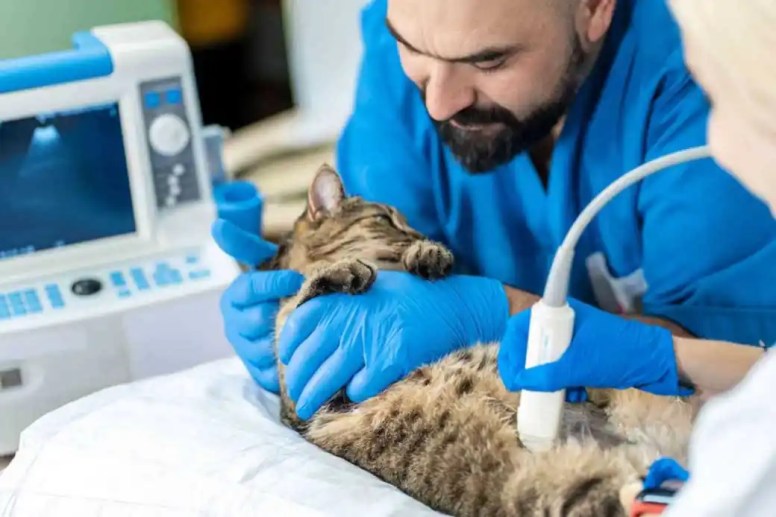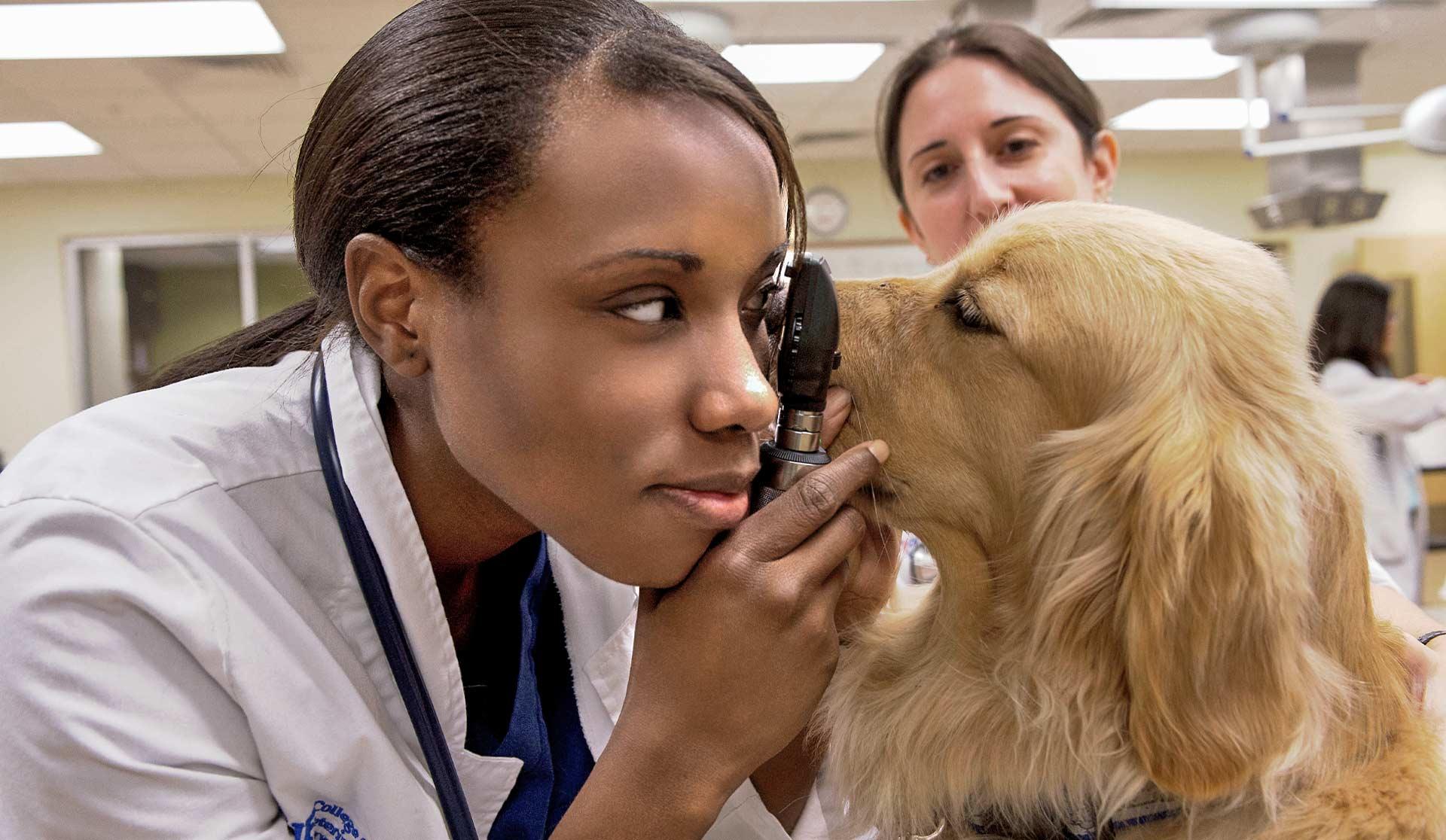Exactly How Pet Health Checkups Aid Identify Early Indications of Illness and Keep Your Pet Healthy
Exactly How Pet Health Checkups Aid Identify Early Indications of Illness and Keep Your Pet Healthy
Blog Article
Inoculation Guidelines From Your Relied On Vet
Vaccination standards given by your relied on veterinarian play an essential duty in protecting your pet dog's health and wellness and well-being. Core vaccines are essential for all pets, while non-core injections can be customized to ecological exposures and specific way of livings. Comprehending the nuances of vaccination routines, which begin as early as six to eight weeks, is necessary for optimal defense. Additionally, resolving typical misconceptions bordering vaccines can better enhance pet dog owners' confidence in these safety nets. As we check out these crucial facets, it comes to be increasingly clear why routine consultations with your veterinarian are crucial for informed decision-making.

Importance of Inoculations
Vaccinations play a critical role in safeguarding animals versus a variety of avoidable conditions. By promoting the immune system to identify and combat details microorganisms, vaccines significantly lower the incidence of infectious illness that can affect a family pet's wellness and durability. Not only do vaccinations protect specific pets, yet they additionally add to herd immunity, thus reducing the overall frequency of diseases in the animal population.
Prompt inoculations assist to reduce the spread of diseases such as rabies, parvovirus, and distemper, which can have severe consequences for both human beings and pet dogs. Vaccinations are usually a demand for boarding centers, brushing solutions, and canine parks, making them essential for those that desire to mingle their pets.

Core Vaccinations for Pets
While the particular inoculation requirements of pet dogs can vary based upon individual aspects, core vaccinations are widely advised to secure against one of the most typical and significant conditions (Pet Vaccinations). Core injections are those deemed vital for all pets, no matter of their lifestyle or geographical area, as they safeguard versus extremely infectious and potentially deadly diseases
For pet dogs, the core injections include those for canine distemper, parvovirus, adenovirus (hepatitis), and rabies. Adenovirus can result in liver condition, while rabies is a zoonotic condition that presents a danger to both human beings and animals.
In pet cats, core injections encompass feline panleukopenia, feline calicivirus, feline herpesvirus (rhinotracheitis), and rabies. Feline panleukopenia is a very transmittable viral disease that affects the immune system and intestines. Calicivirus and herpesvirus are major factors to top breathing infections in felines, while rabies continues to be an important issue for public health.
Seek advice from your vet to ensure your animals obtain their core vaccinations on timetable.
Non-Core Vaccines Explained
Non-core injections are customized to address particular risks associated with a pet dog's way of living, direct exposure, and environment to certain illness. Unlike core injections, which are universally advised for all animals, non-core injections are considered based upon individual situations. These injections are especially essential for pets that might experience special pathogens as a result of their geographical location, traveling habits, or tasks.
Instances of non-core vaccines include those for Bordetella bronchiseptica, which is connected to kennel cough, and Lyme illness, created by ticks. Pets that frequently engage with various other animals, such as those in boarding centers, pet dog parks, or grooming environments, may profit from Bordetella vaccination. If you live in an area where Lyme disease is common, vaccinating versus this illness can be a prudent selection for outdoor-loving pets.
Other non-core vaccines may consist of those for leptospirosis, canine influenza, and feline leukemia, depending on the particular threat factors present. It is vital to have a detailed discussion with your vet about your pet dog's way of life and the possible demand for these injections, making certain a customized vaccination technique that best secures your furry close friend.
Vaccination Arrange Summary

As pet dogs grow, it is vital to comply with the recommended booster inoculations. Pet Vaccinations. For adult pets, core vaccinations are typically given each to 3 years, depending upon the particular vaccination and local regulations. Non-core injections may be suggested based upon way of life elements and local condition read more frequency, demanding a tailored approach
Routine veterinary exams are important for upgrading inoculation routines. Your vet can offer support on the most ideal booster shots for your animal, considering age, health condition, and environmental dangers. By remaining proactive description and informed, pet proprietors can ensure their furry buddies obtain efficient and prompt inoculations, consequently safeguarding their wellness and wellness throughout their lives.
Usual Myths About Injections
Mistaken beliefs about pet dog vaccinations can result in confusion and unwillingness among pet dog proprietors regarding the immunization procedure. One prevalent myth is that vaccinations are unneeded for indoor animals. While it's true that indoor pets encounter lower risks, they are not totally unsusceptible to diseases, as microorganisms can be introduced through different ways, including human clothing and other pets.
An additional misconception is that vaccinations can trigger the conditions they intend to stop. In truth, many vaccinations contain suspended or undermined virus, which can not trigger condition in healthy and balanced pets. Some pet proprietors additionally think that their family pets need to not be vaccinated if they are currently healthy and balanced; nonetheless, inoculations are a positive step that helps prevent the beginning of ailment.
In addition, numerous animal owners fear that injections will certainly lead to lasting wellness issues. The advantages of vaccination-- protecting pet dogs from potentially serious conditions-- far surpass the risks.
Verdict
In summary, adherence to inoculation guidelines is crucial for guaranteeing the wellness and long life of pet dogs. Core vaccinations supply crucial security versus severe conditions, while non-core vaccinations attend to certain threats based on individual lifestyles. Establishing an extensive inoculation routine, along with normal vet check-ups, promotes optimum wellness monitoring. Eliminating common misconceptions surrounding vaccinations further reinforces the relevance of informed decision-making in pet treatment. Inevitably, a positive technique to vaccinations is crucial for preserving family pet well-being.
Not only do inoculations protect specific pets, yet they also add to herd resistance, thereby decreasing the general frequency of illness in the pet populace.
Misconceptions regarding pet vaccinations can lead to complication and hesitation amongst pet dog proprietors relating to the immunization procedure. While it's Learn More true that indoor animals deal with lower dangers, they are not completely immune to diseases, as microorganisms can be presented through numerous ways, including human clothing and other pet dogs.
Some pet dog owners likewise think that their animals need to not be immunized if they are already healthy; however, vaccinations are a positive measure that aids avoid the beginning of health problem.
The advantages of vaccination-- securing animals from potentially dangerous illness-- much surpass the dangers.
Report this page